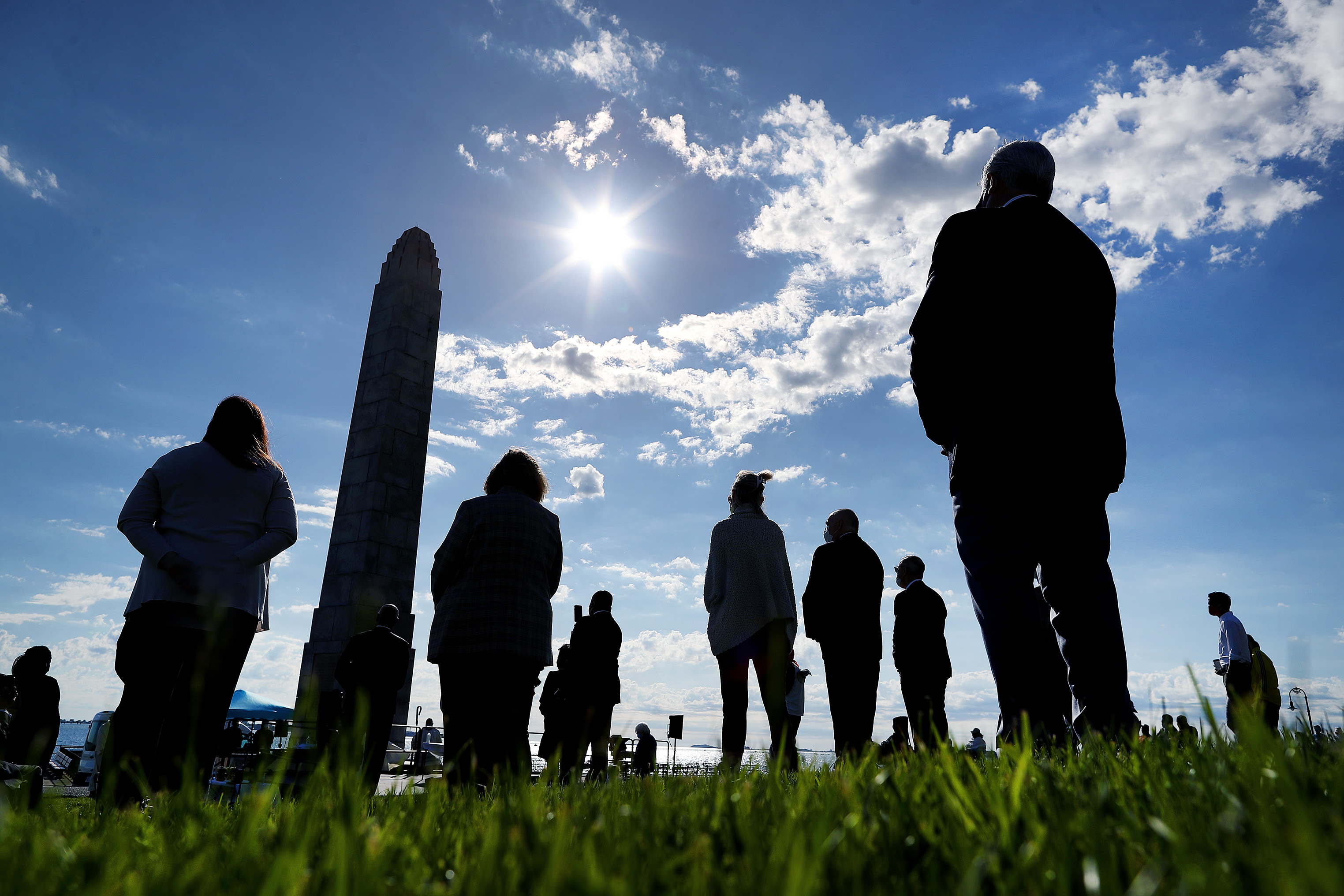Posted By: The Boston Globe | June 13, 2020 | By Globe Staff
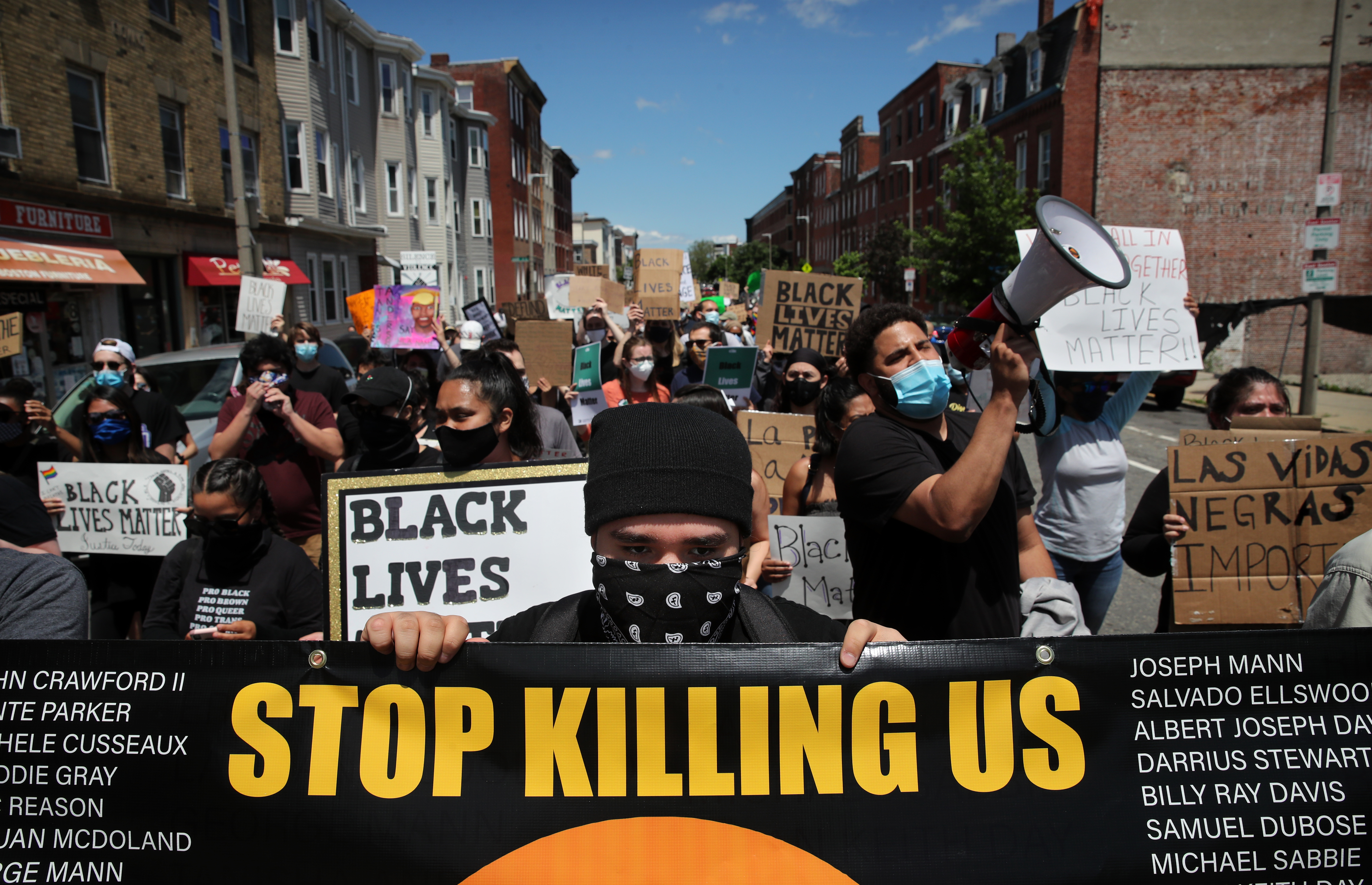
Thousands protested throughout Boston on Saturday, as demonstrations against police brutality and systemic racism continued, with throngs rallying in East Boston, downtown, Franklin Park, and around the area.
At a demonstration in East Boston, advocates demanded the prosecution of police who killed civilians. At Franklin Park, there was a vigil and march for Black transgender victims of violence. Hundreds more marched from Government Center to Boston Common demanding change. In South Boston, the Roman Catholic archbishop of Boston said that racism was threatening to “destroy our country.”
In East Boston, City Councilor Lydia Edwards told those gathered at the Mary Ellen Welch Greenway late Saturday morning into early afternoon that “systemic dismantling is required.” The crowd of about 150 applauded.
“Unless you are fighting against oppression, you are complicit in it,” she said.
The crowd collectively took a knee as names of slain Black Americans, most killed by police, were read aloud.
Some held signs: “Let us breathe,” “Not one more,” and “Justice for Breonna Taylor.” The crowd was diverse and some had brought their children along.
“I came out here to make sure that none of this racism keeps going on, and I hope that this message leaks out to everybody,” said Eli Tennen, an 8-year-old from Winthrop.
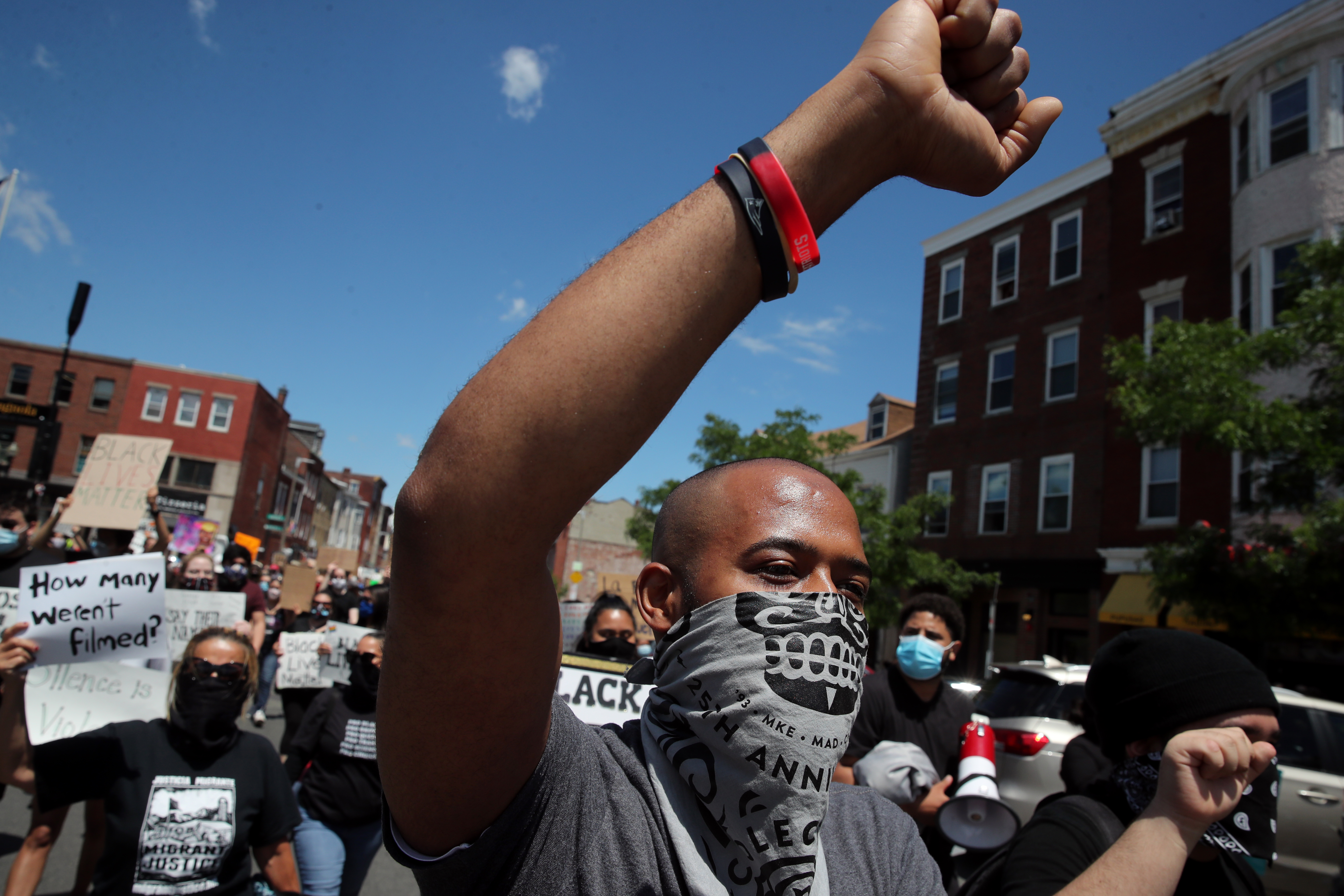
Gatherings in Boston and out to Worcester and elsewhere were among more than a dozen antiracism events around Massachusetts Saturday, part of a burgeoning national movement seeking racial justice and equity.
And they were the latest in a multitude of protests during the past two weeks in Greater Boston. Recent demonstrations, which have been held daily in Boston for more than a week, have focused mostly on the killing of George Floyd but also on the killing of Taylor in Louisville and racial inequality at large.
Floyd, a 46-year-old Black man, died on Memorial Day when a white Minneapolis police officer pinned his knee to Floyd’s neck for nearly nine minutes. Taylor was a 26-year-old EMT killed in March by police executing a “no-knock” warrant.
One of the East Boston event’s organizers, Sirad Zahra, ticked off a list of demands for change. She said she wanted cases of police-involved slayings to be reopened and officers to be prosecuted for their crimes. She called for the city’s school district to disentangle itself from law enforcement and for authorities to stop detaining and deporting nonviolent immigrants. She also called for the renaming of Maverick Square, which is named for Samuel Maverick, a slave-owner who was one of the state’s earliest settlers.
Other advocates from FTP, a group that organized a march earlier in the week, had more demands. They wanted the Boston Police Department budget to be slashed by 10 percent, a cap on police overtime pay, and no police overtime pay for military exercises, among other measures.
Another speaker, Andres Del Castillo, a housing justice organizer, told the crowd, “When we say Black lives matter, we’re saying affordable housing matters, we’re saying how we police in affordable housing complexes matters, we’re saying the dignity of Black children’s childhood matters.”
After the series of speakers concluded, the crowd marched, stopping traffic in one direction on Chelsea Street, heading toward Maverick Square. The marchers chanted “Who do you serve, who do you protect” and “Same story every time, being Black isn’t a crime.” As the throngs approached an MBTA Blue Line stop, a new chant came: “Rename Maverick!”
Later on Saturday, a few hundred people, including children and seniors, marched from Government Center to Boston Common in protest. Demonstrators carried paintings of Black people killed by police, including Taylor and Floyd, surrounded in golden halos.
Some came from Worcester and Quincy to add their voices to the call for better policing, better health care, and better education for Black and brown lives.
“This is not a trend,” said Matt Belinda, 21, a chemical engineering major at the University of Massachusetts Lowell and one of the match organizers. “We’re trying to improve people’s lives. This is about equity.”
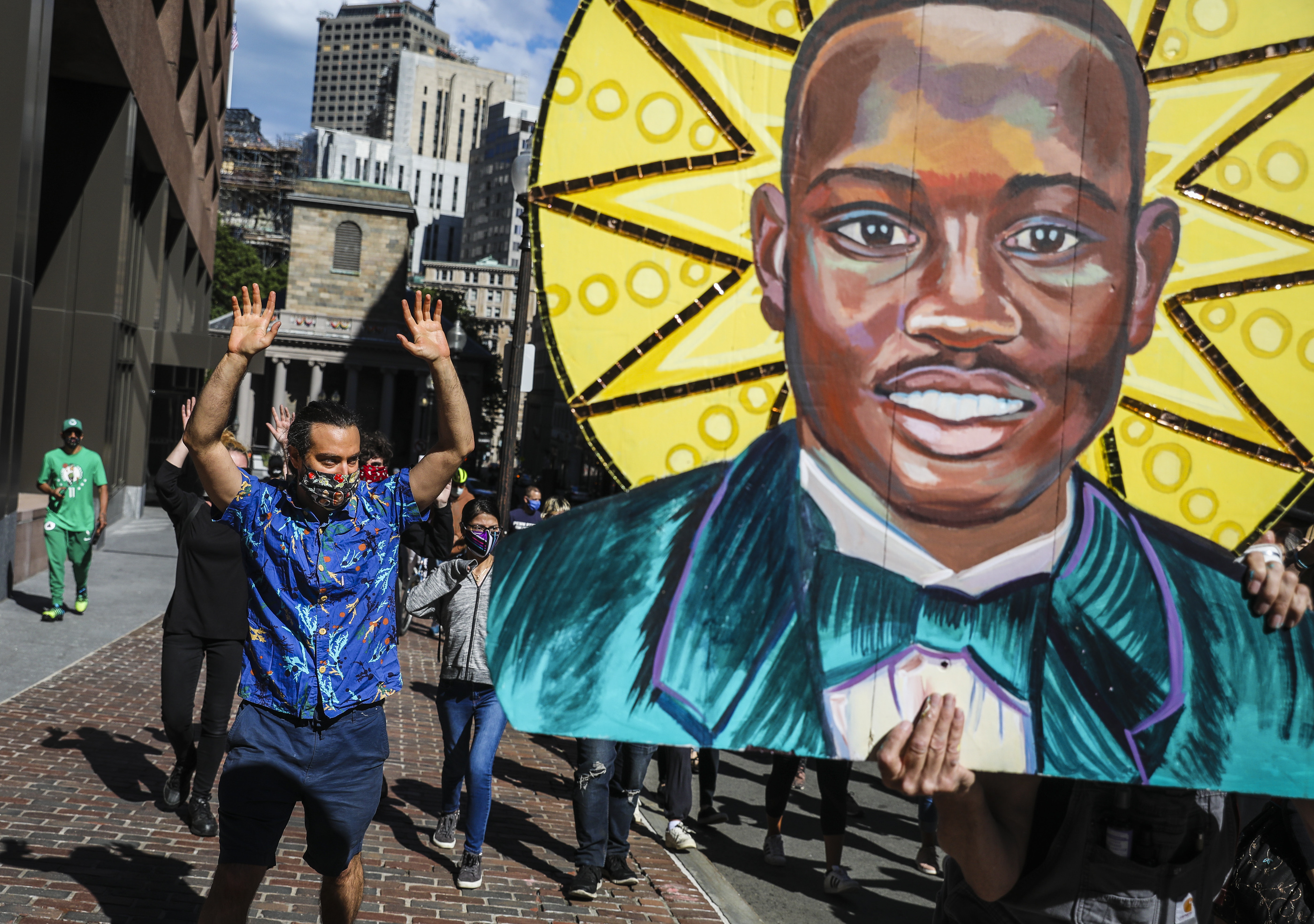
In the afternoon, about 2,000 people of all races, genders, and sexual identities turned out for a Transgender Resistance Vigil and March for Black transgender victims of violence at Franklin Park, which continued with a march to Nubian Square.
The hastily organized event took place on the 50th anniversary of the Boston Pride parade, which was canceled this year due to the threat of coronavirus. Boston Pride’s organizers were criticized for not responding aggressively enough to the recent killings of Black people and the protest movement rising for it.
“We have seen them fail this community, year after year, for 50 years,” said speaker Tre’Andre Valentine, executive director of the Massachusetts Transgender Political Coalition. “It is up to us. We are the ones we have been waiting for.”
“We are tired of being murdered. We are tired of being beaten. We are tired of being raped. We are tired of being told no,” said Chastity Bowick, one of the lead organizers of the event, which raised money for the Transgender Emergency Fund for the support of low-income and homeless people.
In Worcester, hundreds of people attended the peaceful “Say Her Name Solidarity March” on Saturday afternoon, holding signs and chanting as they walked down Shrewsbury Street.
Organizers said the event was intended to both protest the killing of Black Americans by police and to insist on the inclusion of women and trans women in the Black Lives Matter movement.
“We want to focus on the Black women and Black trans women that have been killed due to white supremacy and racism,” said Magdelene Barjolo, the 21-year-old recent college graduate behind the Worcester march. “We’re often the glue that holds these movements together, but over time our voices tend to be drowned out. It’s important to show that a Black woman’s voice and life is just as important as a Black man’s life.”
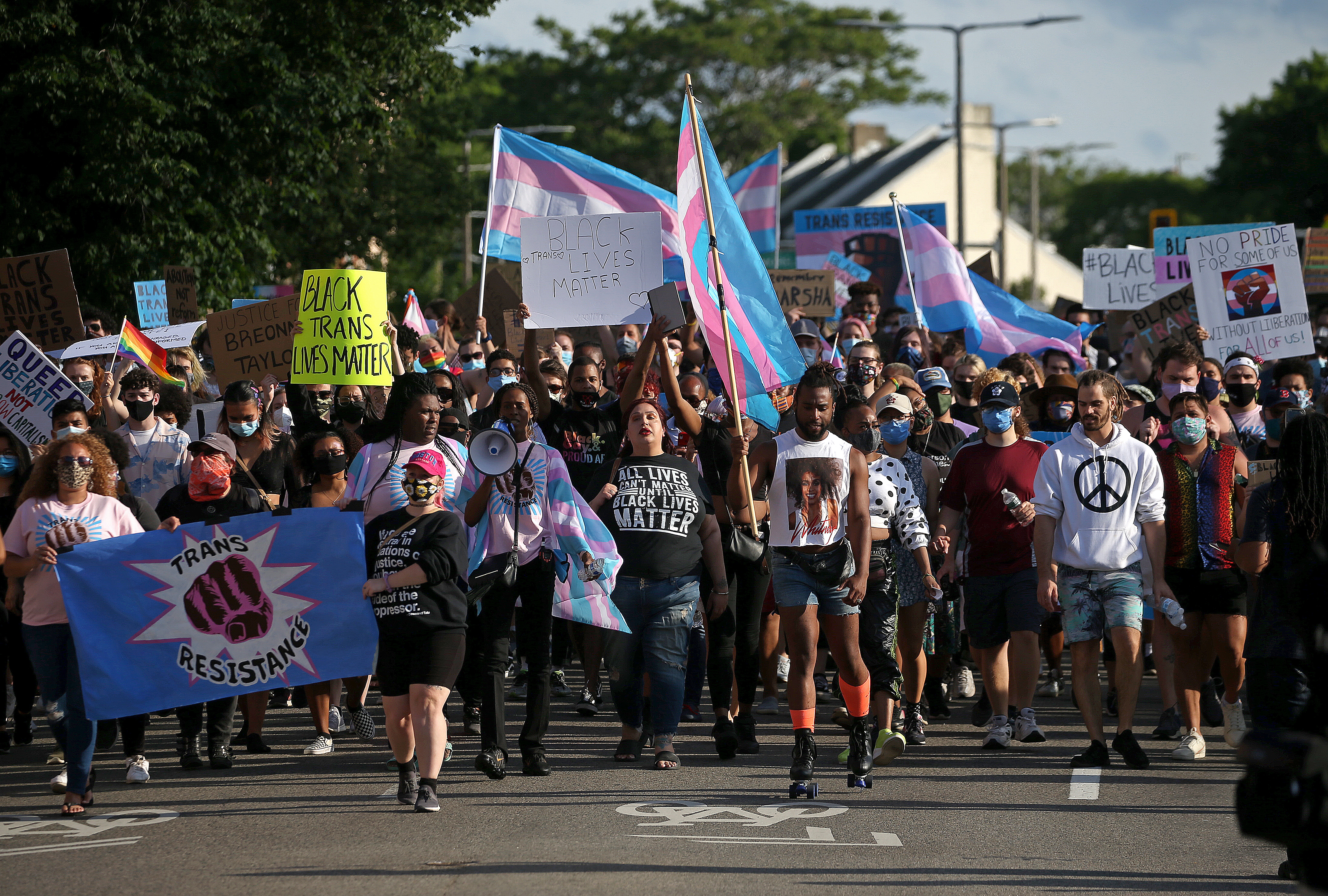
Barjolo, who also organized a protest that drew thousands on June 1 in the wake of George Floyd’s killing, said she wants Worcester officials to divert some of the city’s police budget to public schools and building community spaces for Black youth.
“Black people in Worcester need their own spaces to congregate and speak about the issues affecting our community,” she said. “It’s important for us to have support from our city.”
“We’re just joining the revolution and hoping that something changes,” Barjolo added.
The day began with an interfaith service on Castle Island in South Boston organized by Massachusetts Congressman Stephen Lynch.
Cardinal Sean O’Malley, leader of the Roman Catholic Archdiocese of Boston, headlined the service with a “Mass for Racial Justice and Healing.” In his homily, he argued that systemic racism was threatening to “destroy our country” and urged attendees to do more than offer sympathetic words.
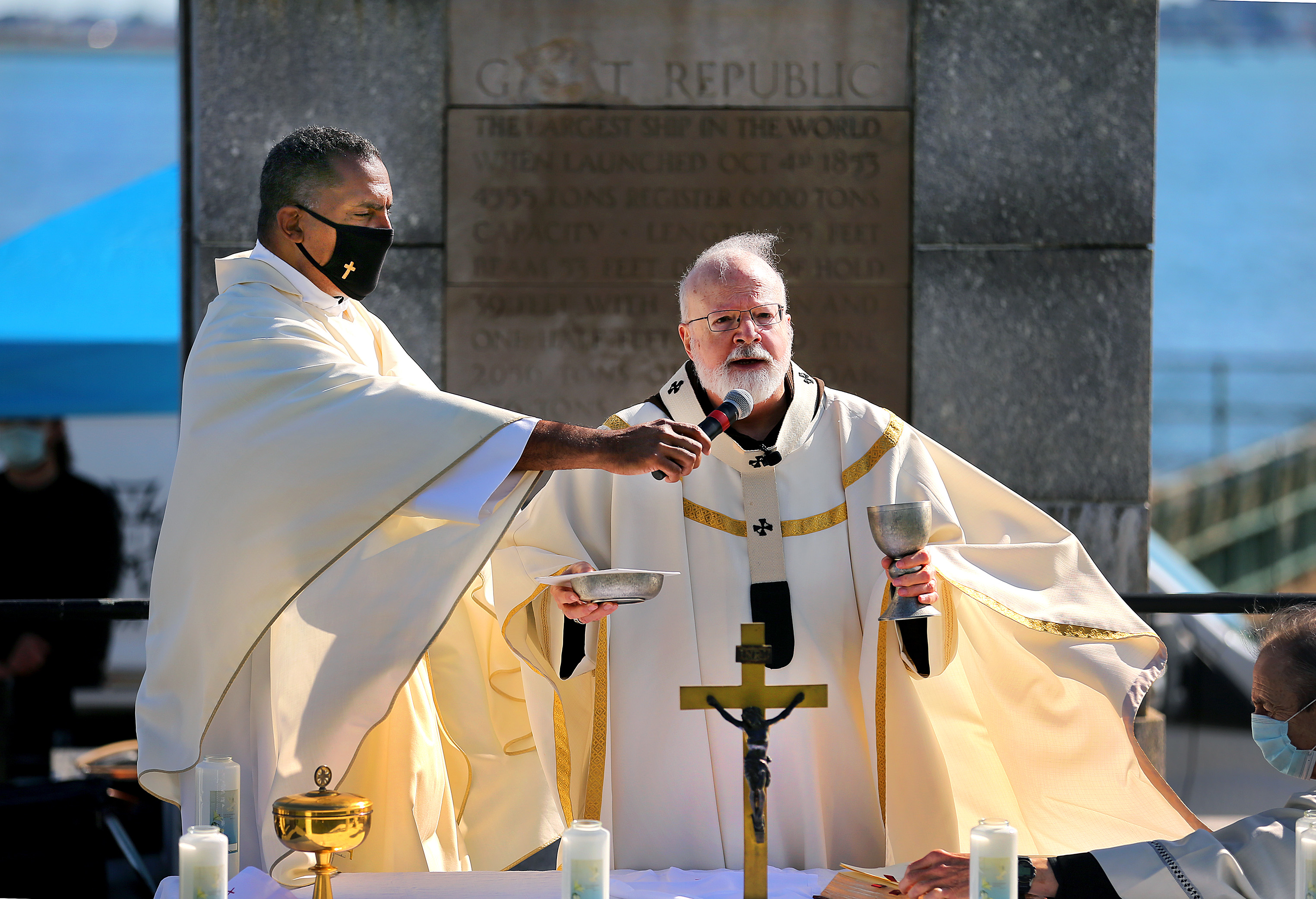
“It is not enough to draw near once for demonstration or a prayer service, and then turn our backs and cross over to the other side of the street,” O’Malley said, according to a copy of his remarks provided by a spokesman. “The symbolic gesture or compassionate word is not enough — we need concrete reform, transparency, and determination to do what needs to be done.”
“This may be our last chance,” the cardinal added. “It is impossible to exaggerate the sense of urgency we must have as Americans. …The death of George Floyd has shaken many of us from our complacency and our complicity. We need to show the world and each other that we are truly committed to justice and that we are capable of transformation.”
